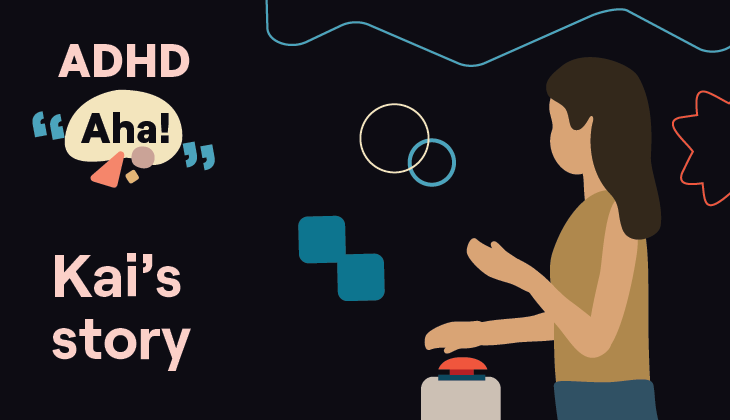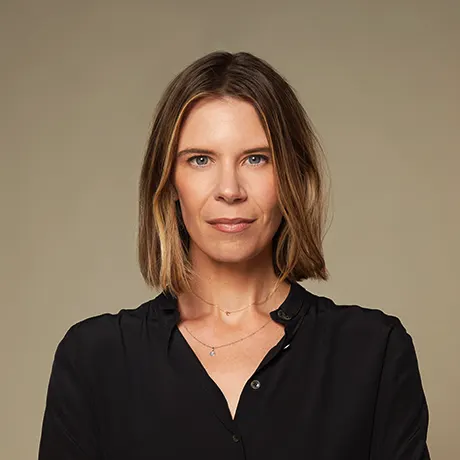Stay in the know
All our latest podcasts delivered right to your inbox.
Kai Liu thought she was doing a good job masking her distractibility and overall frazzled-ness. It wasn’t until a friend checked in with her that she realized she wasn’t masking her ADHD symptoms as well as she’d thought. After some reflection about her trouble with focus, she knew it was time to ask a doctor about ADHD.
Kai grew up thinking she just had a “bad personality.” But this conversation with host Laura Key shows that couldn’t be farther from the truth. Through her ADHD diagnosis, and some self-kindness, she’s turning that way of thinking around. Listen to hear about symptoms of ADHD in adult women — and as Laura and Kai, who’s a comedian, play an impromptu ADHD game show!
Related resources
Episode transcript
Kai: I went to a bar with a bunch of my friends. And I continuously became distracted by all the different things happening around me, especially by all the cute dogs passing by outside the bar. And one of my friends, she was telling me a story. And I couldn't focus on her story. And she gently placed her hand on my hand and said, "Kai, are you OK? You seem very frazzled."
And I thought that was one, the rudest thing anyone has ever said to me, but two, what a nice thing to say to me, because I didn't know that anyone could see this but me. I thought I was masking it very well. And that's when I realized that I might have ADHD.
Laura: From the Understood Podcast Network, this is "ADHD Aha!," a podcast where people share the moment when it finally clicked that they or someone they know has ADHD. My name is Laura Key. I'm the editorial director here at Understood. And as someone who's had my own ADHD "aha" moment, I'll be your host.
I'm here today with Kai Liu. Kai is an actor and comedian who lives near San Francisco. Kai has ADHD, and she's a very funny lady. Hi, thanks for being here with me today.
Kai: Thank you so much for having me. I'm very excited to be here.
Laura: Tell me a little bit about yourself, Kai.
Kai: I am an actor and I am also a writer and an artist, and I am a serial dog rescuer. But funny enough, I only rescue pugs, apparently. So I have three very special little guys running around. They have their own Instagram, which I am not ashamed to plug: Peanut and Butters The Pugs, if you would like to follow.
Laura: What do you love so much about pugs?
Kai: When I was a kid, I had a pug — also a rescue pug. And he was my best friend because I was an only child. You know, when people say that dogs listen to you, regardless of whether or not you're a good or bad person? I'm not saying I was a bad person or a bad kid. But he was just there. He was just my best bud. And you listened to me and that really stuck with me.
And as soon as I became an adult, I did an application on my own, did the home check. And now I'm just stuck with a bunch of pugs forever.
Laura: As a dog lover myself who grew up with dogs, I can relate to that. I have a sheltie and she's noisy and not in the room right now, because that would be very distracting.
Kai: It's weird. Once you get attached to a breed, you're attached to a breed.
Laura: Always been shelties for me, for my dad, for my grandparents, always, always and forever. Sheltie love.
Kai: That's your bumper sticker.
Laura: That's my bumper — wait, how did you know?
Kai: I have a bumper sticker that says "pug life" and it's in the shape of a pug.
Laura: That's great. Kai, I want to go back to something you just said. You used the term "bad person," right? And I know you were saying it like in jest a little bit, you talking about growing up with dogs, but it is like this whole idea of like being a bad person, having a bad personality, quote unquote, it's a thread for you in your story, isn't it?
Kai: It is kind of a thread for me and my story. I don't consider myself a bad person whatsoever. I'm just gonna lay that out there. However, I was raised in kind of an abusive household and environment where I was told that I was a bad person if I didn't do certain things around the house like chores, or if I didn't get straight A's — and I never got straight A's. I got three A's one time. And that summer, I felt like a little angel the whole summer.
But I think for me, my whole adulthood has been a redemption story almost, where I am constantly proving to myself and trying to prove to others that I am, in fact, a decent human being. It's a constant struggle to remind myself that the words of my childhood and the things ingrained in me from a very early age are incorrect and not true.
Laura: This idea of like being bad, like bad person or bad personality, it's related to your "aha" moment, isn't it?
Kai: It is. It really is. So I grew up not really knowing if there was something inherently wrong with me. You know, as my upbringing told me that there was something inherently wrong with me.
I was always kind of a space cadet kid. I daydreamed a lot and I wouldn't pay attention. And growing up, I really thought that it was because of the trauma that I had. And maybe a lot of it was part due to the trauma that I experienced. However, got to a point when I was in my early 20s, where at work, I just couldn't pay attention. And every little change in light or noise or sudden movements really just threw me off.
I could be really extremely focused on a task, and something would happen and I would just be gone. And it would be a struggle to come back to that task. I would just be frazzled for the rest of the day. And I use that word "frazzled" kind of lightly, but it felt like thousands of tiny explosions were happening in front of my face at all times.
And when I was maybe 25, I went to a bar with my friends, a bunch of actor buddies of mine. And the bar, you know, it was a bar. It was noisy, it was dark, but light, you know, really bright in some corners. And there was a window wall to the outside street and it was in San Francisco. So a lot of traffic and dogs. And you know how much I love dogs. Every single dog I saw, I was like, "Oh my God, it's a new dog. I love that dog. I have to go pet that dog." And one of my good friends, Joanna, she saw me getting distracted by all of these different things. And she just put her hand on my shoulder and was like, "Kai, are you OK? You seem just really frazzled." And I looked at her and I went, "That is the rudest thing anyone has ever said to me. But also, I didn't know anyone else could notice how frazzled I was. I thought I was masking it really well." And that really got me thinking, because I was an educator also before, and I worked with special needs kids. And so I had read up on all of these different learning disabilities and disorders, but I had never really applied them to myself.
And so on the drive home, I kind of went through all of the different symptoms that I was going through in my life. And I realized I might actually have ADHD. So that night I went on my Kaiser app, made an appointment. The next day, went to my doctor and said, "Hey doc, I don't know if I just have a terrible personality because I'm not paying attention to anything anyone's telling me. And not that they bore me, but I just can't focus. Or I have ADHD." And she went, "I don't think you have a bad personality, first of all, but let's do the test. Let's check." And lo and behold, I couldn't even focus enough during the tests to take the tests. I had ADHD.
Laura: Whoa, couldn't even focus enough during the test to take the test. That's some serious trouble with focus, Kai.
Kai: It was. And honestly, it was just an absolute relief to learn that I had ADHD, because then — it wasn't an excuse to be everywhere all at once. But it was —it was a reason. It was a good reason that I could hold on to, you know, it was kind of like a relief, a weight off my shoulders.
Laura: I can imagine. I mean, I've been there. I know that feeling. And for you, you know, obviously you have a wonderful personality. But for you, it was this relief of no, I just, I don't just have a bad personality, right? Which I actually think that that's probably a pretty common feeling in the ADHD world.
Kai: Absolutely. I think when you get diagnosed as a kid, it's a lot different than when you've grown up your whole life not knowing that you had something like that. And then discovering that, oh, there are reasons for why I overcompensate for certain things or why I need to mask other things. So it's definitely a different feeling when you are diagnosed with it in adulthood.
Laura: A lot of people don't realize, like when you have ADHD again, it's not just about hyperactivity. It can be for some people, but for a lot of people, it can really affect social skills. Other than distraction, like what other ways does ADHD affect you socially?
Kai: It makes me very, uh, flustered and gives me a lot of anxiety when I go outside. Before I started taking medication, I had a lot of social anxiety. I couldn't even go to Costco without having a full-on panic attack, just because there was so many things going on, you know. The ladies yelling "Free sample!" And of course I want that sample, but I want the other sample across the aisle. There are a lot of ladies giving out samples at Costco. And I love free samples.
But I would just dread going to parties — going to really just any social event. Not that I didn't want to. I absolutely wanted to see people and see friends. I like going to parties. But when I'd get there, I would always just be so overwhelmed and, you know, the sweat would just start dripping down, and I would just become so agitated that I realized not only was I not having fun, but I don't think anyone who is talking to me was having fun. And that's something that makes me sad, when someone's talking to me and they're not having fun. So I just, I avoided going outside. I avoided seeing people for brunch or outside of work obligations. I just kind of stayed at home.
Laura: Did anybody ever tell you that it seemed like they weren't having fun, or do you think that was your own narrative?
Kai: I have a very poor narrative internally, but I don't think anyone has outrightly told me other than my parents.
Laura: Sticks with you, huh?
Kai: It really does, yeah. I think I've used my whole life to run away from a few times where my dad said that I was a very boring person.
Laura: Boring?!
Kai: Yes. Yes.
Laura: Why boring, do you think?
Kai: I was a very depressed kid. I was a very dissociated kid, mainly because of all the traumas that they have put me through. But I daydreamed a lot and oftentimes when they would talk to me, I would get very distracted. And so he would just say, "You're kind of a boring kid."
Which, you know, if you have kids, don't, don't say that to your kids. It really haunts them. And then they spend their whole lives trying to do comedy. And that does not pay.
Laura: Yeah. We've been talking for a few minutes. You're anything but boring, number one.
Kai: Why thank you.
Laura: Secondly, I'm so sorry. That's an awful thing to be told and it's not fair, and you've carried it with you. With a lot of my guests, I talk about relationships with family and stigma around ADHD or like disbelief even. And with some people, they're like, "Yeah, I'm starting to talk to my parents about it. I'm going to talk about my ADHD and what's going on with me, with my family and try to squash some myths with them." And like for others, it's like, "You know what, let's move on. And let me work on myself." Which camp would you say that you're in?
Kai: Oh, the second camp, absolutely. It's been a struggle explaining, you know, how to send an email attachment to them. I'm not gonna sit down and tell them how my brain works. That's way more complicated than an email attachment.
Laura: Yes it is — way more complicated.
Kai: It has been a struggle to mask it in front of my family, or just at least put it aside when I'm with them and then deal with it in my own time.
Laura: What does the masking look like at family gatherings?
Kai: The masking looks like just smiling all the time, nodding your head when they're talking to you. And, uh, also just if they ask you any questions, just stuff food in your mouth and just say, "This is really good. Did you make this? Wow, you're such a good cook." And then they'll be so flattered by that, that they'll totally forget that question that they asked you.
Laura: I'm sorry that you have to do that. And yet you tell these stories with so much humor, I can't help but chuckle a little bit. Some of what you were describing about being at parties or being at a bar, is there any sensory stuff going on too?
Kai: Absolutely. I smell all the smells, unfortunately. And I don't have bad eyesight, so I can see distracting things from really far away. And, uh, I don't have the best hearing, but I can also hear just all of the dogs. I can hear their little feet. I can hear their little sniffles. There's just a lot of different things happening all at once. And something that I've learned after discovering that I have ADHD is that I need to learn how to really just block out a lot of sensory overload. You know, I need to really pick and choose which ones I zero in on.
Laura: I'm not a diagnostician. I don't know why for you in particular there's sensory stuff going on. But I know one thing that can lead to that from an ADHD perspective is exactly what you're talking about, which is like, a lot of people think, oh, it's just trouble paying attention. Sometimes it's also trouble figuring out what not to pay attention to.
Kai: Absolutely. When people picture someone with ADHD, they always picture someone running around, usually a little boy. And it's not usually grown women who struggle to focus on their daily lives with a lot of sensory overload.
Laura: And it's interesting. I mean, I don't remember exactly how many of these interviews I've done at this point, but almost none of the interviews have focused around hyperactivity. And it's not that hyperactivity is uncommon, you know, it's just, it's not everyone with ADHD.
And like the one or two people who I did talk to about hyperactivity were both women. So there's just so many misconceptions, I think, is what I'm trying to say.
Kai: Oh yeah. I think part of the reason could be is that people who have hyperactivity in their ADHD get diagnosed a lot earlier because it's so noticeable. And so they have less of an "aha" moment because someone else will have "aha"-ed for them.
Laura: I want to try something. I don't know if this is going to work or not, but I pulled up, before our interview, a piece of content on our website, on Understood.org, that listed basically like ADHD symptoms that can cause trouble with social skills. And I want to try something. I want to, I want to say the symptom. And since you're such a creative person, if you're open to it, I want you to respond by saying like how that translates into like —
Kai: I always wanted to be on a game show, so yes.
Laura: Here we go. Yeah. I just, I've never done this before, Kai. I feel like you're the perfect candidate for this. I'm going to give you the symptom or the ADHD-difficulty related difficulty, and you find a way to spin it. This is actually anti-therapeutic. I shouldn't do this. You find a way to spin it into a negative thing that's related to a bad personality.
Kai: Oh no. OK. A negative thing.
Laura: Spin it into a negative thing and then we're going to bring it back around.
Kai: OK, OK. Dig in real deep here.
Laura: Dig deep. OK. So someone with ADHD might be distractible. That may manifest as…
Kai: That might manifest as… when someone's telling you about a really tragic thing that happened, like something, like someone dying. And you realize that you're really thirsty. And so you get up mid-conversation and then you get a drink of water and come back, and going, "Oh, you're crying. But I was thirsty."
Laura: I'm sorry. I'm laughing 'cause that was a very sad example, but it's so good. You're good at this. OK. So distractible, you gave a great example of what that could look like. Another example I had listed could be like, just going off topic, right? And people are like —
Kai: Oh yeah, much easier one. Less sad. So much less death.
Laura: There are no wrong answers here.
Kai: He has the right answer except for the one that you just did. Yes.
Laura: You want to do another one?
Kai: Yeah. I'm here for all the games.
Laura: OK. Trouble with planning.
Kai: Oh man. So like when your significant other plans a full day when you're on vacation, and they give you this itinerary. And they're like, well, at first we're going to go see this bridge and then we're going to go to a museum and then we have reservations here. And then you blow it up immediately because you saw that there was some kind of exhibit somewhere else, and you really needed to see that gummy bear. Imagine if your significant other plans out a full day, and you see that there is a traveling world's largest gummy bear exhibit. You want to go to that exhibit and you want to touch all the gummy bears.
Laura: This happened, didn't it, Kai?
Kai: It didn't, but I'm imagining it in my head.
Laura: I love it. Yep. Exactly. Trouble with planning could be mistaken for being unreliable or being flaky. All right, let's do one more: impulsivity.
Kai: OK. So when you get a gift card, and you need to use this gift card for something that your house needs — kind of like toilet paper. But then you realize that this gift card, even though it has exactly the right amount of money for toilet paper that you're going to need to use throughout the week, you see something really shiny in the store. And instead you pick up that really shiny thing. And then you don't have toilet paper for the week.
Laura: That would be impulsive.
Kai: And that may have happened in my life.
Laura: Right. Impulsivity can show up in lots of other ways too, but like that is a great example. So the purpose of this exercise, I think — that my producer Jessamine is probably like, "What is Laura doing?" — what I'm trying to say is that ADHD behaviors translate into these like super ubiquitous quote, unquote, bad behaviors. People brush them off and they're just like, oh, bad person, bad personality, whatever, bad at life. I don't know. But really it is something that is related to the symptoms that they can manage, but don't have full control over.
Kai: Yeah, absolutely. That's why, you know, everyone should do what I do. Just surround yourself with people — others who have ADHD and you're all distracted together.
Laura: Do you do that? Do a lot of your friends have ADHD or loved ones?
Kai: You know, it's funny. I discovered that I have ADHD. And then because I'm so vocal about my problems and I'm just an overall oversharer — which is good and very, very bad — they have actually picked up on a lot of the symptoms that I complain about. And then they realized that they might also have ADHD. And so I've actually helped a lot of my friends go to their therapist or their primary physician and get tested themselves and get help. So, "You're welcome" to my friends. You know who you are.
Laura: What are the next steps for you, then? You're on this path to not just acceptance, but like, not to sound cheesy, but self-love, and like embracing the ADHD-ness of it all. And kind of flipping the script on the bad personality and into being like, oh, "I'm creative."
Kai: Yeah. Something that I've really enjoyed about having ADHD is that it has forced me to become more creative. It has forced me to learn a lot of different skills. And that's just because if I get really bored, I'll just try a new skill that I see on Pinterest. If someone made something out of wood, I could just be like, "I can do that." And then I'll go out and I'll buy a bunch of materials to do things with wood. But then I'll get really mediocre at this one skill. And then I'll get bored again. And then I'll move on to a new skill that I saw somewhere on the internet, especially at 3:00 in the morning. That's when the juices really get flowing. 3 a.m. is when I decide I'm going to learn a new skill and I'm going to do it mediocre.
Laura: And you will crush that skill. I bet you're crushing it.
Kai: I will absolutely crush that skill and then move on to the next skill and then maybe crush that skill.
Laura: Your mediocre, I'm sure, is crushing all the skills.
Kai: Thank you for believing in me.
Laura: I believe in you so much. And it's nice to hear you in your own, like, very funny way say what sounds like something really nice about yourself. Like you're acquiring so much knowledge and like you're able to do so many cool, fun things. Kai, this has been so much fun to talk to you. Seriously, I mean, thank you for, for coming on and chatting with me.
Kai: Thank you so much for having me. I was genuinely extremely excited to talk to you. Well, I love talking about my problems. So having an avenue where everyone can listen to my problems, that's the dream.
Laura: You've been listening to "ADHD Aha!" from the Understood Podcast Network. If you want to share your own "aha" moment, email us at ADHDaha@understood.org. I'd love to hear from you. If you want to learn more about the topics we covered today, check out the show notes for this episode. We include more resources, as well as links to anything we mentioned in the episode.
Understood is a nonprofit organization dedicated to helping people who learn and think differently discover their potential and thrive. Learn more at understood.org/mission. "ADHD Aha!" is produced by Jessamine Molli. Say hi, Jessamine.
Jessamine: Hi, everyone.
Laura: Briana Berry is our production director. Andrew Lee is our editorial lead. Our theme music was written by Justin D. Wright, who also mixes the show. For the Understood Podcast Network, Scott Cocchiere is our creative director, Seth Melnick is our executive producer, and I’m your host, Laura Key. Thanks so much for listening.
Host
Latest episodes
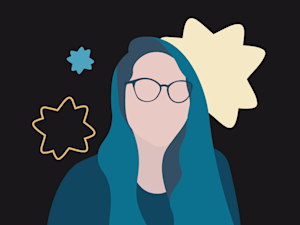
April 16, 2024
ADHD coach Jaye Lin was a gifted kid with undiagnosed ADHD. Now, she’s building communities and helping others cope with ADHD burnout.
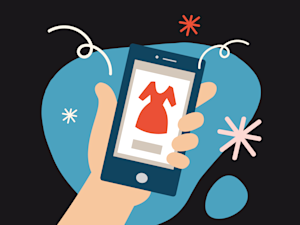
April 2, 2024
Writer Paulette Perhach had money coming in but struggled to keep it in her bank account. An ADHD diagnosis brought her struggles into perspective.
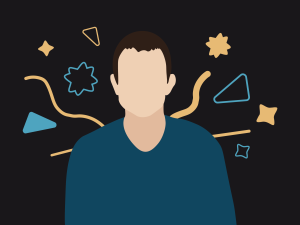
March 19, 2024
Eye to Eye founder David Flink is fighting the “just try harder” myth surrounding ADHD, dyslexia, and other learning and thinking differences.
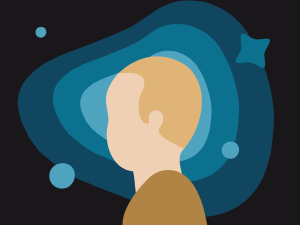
March 5, 2024
Peter Jones used to feel better saying he had a hearing problem rather than considering ADHD. Now, he knows he has ADHD and isn't afraid to say it.
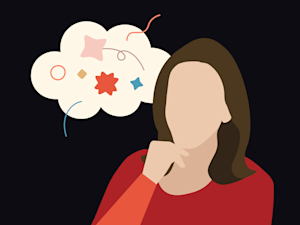
February 20, 2024
Before her ADHD diagnosis, ADHD coach Emily Weinberg thought she was just lazy. But in reality she was stuck in “analysis paralysis.”
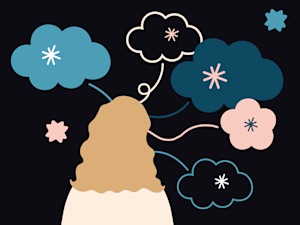
Carol Blumenstein was called an unteachable student. Now, she knows she has ADHD and dyslexia, and supports her five kids who learn differently, too.

January 23, 2024
Executive coach, actor, and former criminal defense attorney Ernest Anemone shares his ADHD story — and why he questions the term “attention deficit.”
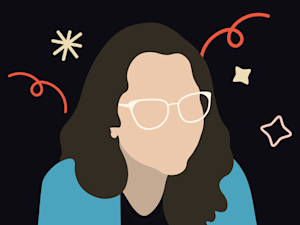
January 9, 2024
ADHD and post-traumatic stress disorder (PTSD) symptoms can look similar. And they can morph into what Hannah calls “a trauma ball of blame.”
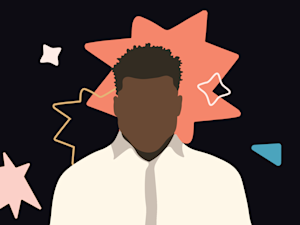
December 26, 2023
Livingston Steele was diagnosed with ADHD about a year into working at Understood.org. His experience and work have given him immense empathy for people with ADHD.
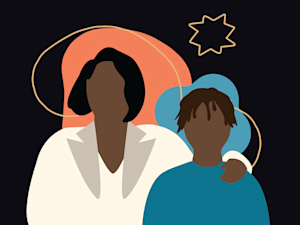
December 12, 2023
Wendy Zanders is a decluttering coach with ADHD. Find out how she got into organizing, and get a few tips for yourself.
